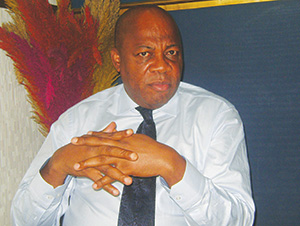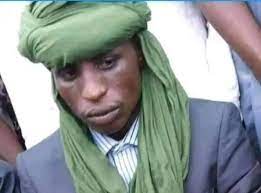Former President, Nigerian Bar Association (NBA) and human rights lawyer, Olisa Agbakoba (SAN), in this interview with Senior Correspondent, ONYEWUCHI OJINNAKA, speaks on the call for the creation of special courts for corruption, among other issues.
Does Nigeria need special courts to try corruption cases?
We do not need a special court; what we need is to rebuild and strengthen the system. When the banks failed under the late General Sani Abacha, we had the Failed Banks’ Tribunal because the courts were not working. Fix the courts, make the court structure strong, fund them, make them work, give them enough incentives not to be tempted by corruption, create modern IT (information technology) tools, so that judges do not spend time writing in long hands, and then make the charges realistic not just the courts. A special court will not necessarily do away with the problem.
I understand from Professor Itse Sagay’s committee that in the integrity test that was administered, judges even failed. So who is going to man the special courts? Is it not the same judges? When the cause of my malaria ceases to have effect, the effect of my malaria will cease. When the cause of judiciary not working well ceases to have effect, the judiciary will be a lot better. For instance, you apply for judgment but find that the judge has 160 judgments pending and he is the only one. But, if you compare a judge to a minister, a minister has about 20 people backing him up, a judge has one or two, mostly illiterate. So, he has to provide the resources to type, vet and certify every judgment, and he is giving two or three a day. That is the problem. But in America, it is not the function of a judge to be worried about his judgment. Once he delivered it, it is sorted out and brought back to him. So, you can see that part of the reasons for delay is because of the way the courts work. If you create a special court to avoid the problem in the ordinary court, very soon the special court will be caught up with the problem of the ordinary court.
If you want to tackle corruption, tackle it upstream; do not start from downstream and think the problem is solved. If you create a special court, what about the prosecutors, what about the lawyers? Because, it is a chain in the stream of justice, so why are you picking on the poor judge who is now faced with an incompetent prosecutor, who brings wrong charges and allows a clever SAN (Senior Advocate of Nigeria) to bring preliminary objections. So special court is not the answer, it is a much deeper problem.
What is your position on the ongoing probe by the present administration?
Probing is a blindfold. You probe without fear or favour. If someone is guilty, then the person should get ready to be probed. On the part of laying too much emphasis on probing and in the context of Nigeria being a very corrupt country, you cannot help it. I will wish the probe issue is not the key highlight of government. It will be good to have it go along with other things. The president’s function is to deliver a comprehensive package such as probing, fighting corruption, development, new energy sources, education, welfare to the poor and so on. Though they came into power with a very lean financial base, I think if the government is targeting 25 million very frail and volatile Nigerians, they should have announced it. It would have helped.
Part of the campaign pledge was N5,000 for the very vulnerable like those unemployed, elderly people. It will be good to announce that now. When I chaired the NBA conference that the vice-president attended, he said so. He said the government is going to be very strong on social welfare. Just like in the Christian world, there are different kinds of Christians. In the political world also, there are different kinds of politicians.
This government is called the left of centre. It is a social democracy government. This present government is saying it will include everybody while other former governments only catered for only a few. The government that caters for all is likely to be popular. So if President Muhammadu Buhari is able to achieve the agenda that he promised, he will be a very popular person. We are waiting to see. This is why I say it is not easy to judge him on 100 days. If he does not achieve what he promised, it will be business as usual. In Nigeria, only very few like Obafemi Awolowo have been able to keep to their promises.
Is it right for government to probe individuals?
I will be against probing individuals. I will be against the president probing anybody. That is not his function. The function of the president is to recognise that there is corruption. Next thing is appoint good people to fight this corruption and not for the president to say “Go after Olisa Agbakoba”. It is for those people that have been given the job to, without reference to the president, do what they have been appointed to do, otherwise it will become selective. That was the problem with Olusegun Obasanjo’s anti-corruption programme because it appeared selective. It appeared as if it was targeted at certain people. Nobody should be targeted in the anti-corruption war. It is when you erect the net, if you are corrupt, the net will catch you; but not that you are taking the net to Olisa’s house. You erect the net for everyone and if you are not corrupt, it would not catch you. I will personally recommend to the president not to mention anybody’s name. Buhari should set up a strong anti-corruption framework.
What is your assessment of Buhari’s 100 days in office?
The 100 days matter is symbolic. We should not dwell on it that much. The 100-day celebration is an American experience. The first 100 days concept was pioneered by the former American president, Franklin D. Roosevelt when he took office in 1933. He was faced with the great depression and the total collapse of the economic system. Banks were closed and businesses completely failed. The 100-day concept is not an accurate yardstick for gauging the presidential effectiveness because the situation and the Nigerian environment have no comparison to the American experience.
Notwithstanding, I understand the importance of examining the president’s achievement in his first 100 days in office because expectations were high. The president’s campaign was run on the promise of ‘change’. The people voted the president in for ‘change’. It must be said that the change is not going to be seen in the context of new projects or new buildings or the commissioning of new roads or power plants, but the change will be in the minds of the populace.
An analogy can be made between Nigeria and world renowned theoretical physicist, Professor Stephen Hawking. He is the third greatest physicist the world has seen in the last 600 years. I made this analogy because the professor is completely paralysed physically as a result of a motor neurone disease which he suffers from. However, his spirit and mind changes things. Nigeria can be seen as physically paralysed but President Buhari’s ascension to the presidential office has changed the mindset of the populace. Changing the mindset and the orientation of the people is a great achievement
There is order and signs of good governance. All these are still being run by the same people. The question is: what changed? Their mindsets have changed. This is the achievement of ‘change’ as a result of the president. To be successful, one must understand the environment, control it and then begin to make a difference. On that, I am satisfied that the mindsets of people have become more positive; more anti-corruption, more aligned with doing things the proper way.
Are you saying 100 days is too early to assess the president?
No, 100 days is not too early. It is a good length of time to judge a president, but on what parameters? My parameter of judging President Buhari’s 100 days is different from the parameter that I see in the media. They want to know where the ministers are and what is new. They are judging him on physical parameter while I am gauging his effectiveness on intangible parameters. What I see different is Buhari’s understanding of the Nigerian mindset and tackling it first before addressing other issues. It is the succeeding period that will be judged.
I also expect the dismantling of the corporatist government. Nigeria is a corporatist country, meaning that we are interested in corporate well-being. The Nigerian society cares for the elite and not interested in the common man. This was also one of President Barack Obama’s challenges. Obama shows interest in the welfare of the common man, while the Republicans are interested in the corporate wellbeing. Buhari campaigned on the agenda that he shall include the common man; he said he would identify with vulnerable Nigerians. He has set the target at 25 million people and will dedicate finances towards their needs. We have to see that happen. Social issues also have to be addressed – issues such as health, education – and what policies the president is going to run on.
The problem is that Nigeria is a very sick country and the president’s prescriptions to cure this sickness and ensure its future must be addressed. It is sick because no Nigerian leader has understood how to manage Nigeria’s diverse peoples. Can Nigeria be governed from Abuja? Is this government going to look at how to decentralise power? We are about six kinds of people in about 300 ethnic groups. Are we going to have these groups empowered in a way that the difference that various groups feel will lead to chaos and civil unrest?














